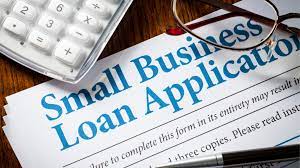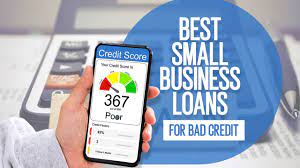Getting a Small Business Loan with Bad Credit
Introduction
Small businesses are an essential part of any economy, contributing significantly to employment and economic growth. However, as any small business owner knows, starting and running a business is not an easy task. One of the primary challenges is obtaining financing to grow and sustain the business. This challenge is even more significant for those with bad credit. In this blog post, we will explore the options available for small business owners with bad credit to obtain a business loan.
Small Business Loans: An Overview
A small business loan is a type of financing that is specifically designed to help small businesses with their financing needs. Small business loans can be used for a wide range of business purposes, such as purchasing equipment, inventory, and real estate, or expanding the business.
Typically, small business loans have lower interest rates and longer repayment terms than other types of financing. However, one of the key requirements for obtaining a small business loan is a good credit score. This can be a significant challenge for small business owners with bad credit.
Bad Credit: What is it?
Bad credit is a term used to describe a credit score that is below a certain threshold. Credit scores are a numerical representation of an individual’s creditworthiness and are used by lenders to evaluate the risk of lending money. The three main credit bureaus in the United States are Equifax, Experian, and TransUnion. They use various factors, such as payment history, credit utilization, and length of credit history, to calculate an individual’s credit score.
A credit score of 580 or below is generally considered bad credit. Having bad credit can make it challenging to obtain financing, as lenders consider it a high-risk proposition. However, having bad credit does not mean that obtaining a small business loan is impossible.
Options for Obtaining a Small Business Loan with Bad Credit
While having bad credit can make obtaining a small business loan challenging, there are still several options available. Here are some of the most common:
Microloans
Microloans are a type of small business loan that is designed to help small businesses that need a small amount of financing. Typically, microloans are for less than $50,000, and they have shorter repayment terms than other types of financing. Microloans are offered by non-profit organizations, such as the Small Business Administration (SBA), and other community-based lenders.
One of the significant advantages of microloans is that they are often more accessible to small business owners with bad credit. The application process is less stringent, and the requirements are generally less onerous than those of other types of financing.
Peer-to-Peer Lending
Peer-to-peer (P2P) lending is a type of financing that matches investors with borrowers. P2P lending platforms connect borrowers with a network of individual investors who are willing to lend money. These loans are typically unsecured, meaning that they do not require collateral.
One of the benefits of P2P lending is that borrowers can often obtain financing with bad credit. However, interest rates can be higher than other types of financing, and repayment terms can be shorter.
Business Credit Cards
Business credit cards are a type of revolving credit that can be used to finance a wide range of business expenses. While business credit cards often have higher interest rates than other types of financing, they can be a useful tool for small business owners with bad credit.
One of the benefits of business credit cards is that they can be easier to obtain than other types of financing. However, it is essential to use business credit cards responsibly and to pay them off each month to avoid high-interest charges and mounting debt.
Merchant Cash Advances
Merchant cash advances are a type of financing that is based on a business’s future credit card sales. Essentially, a merchant cash advance provides a lump sum of cash in exchange for a percentage of the business’s daily credit card sales. Repayment terms are often shorter than other types of financing, and interest rates can be high.
Merchant cash advances can be a viable option for small business owners with bad credit because they often do not require a credit check. However, it is essential to consider the high-interest rates and short repayment terms, which can make this type of financing challenging to repay.
Collateralized Loans
Collateralized loans are a type of financing that requires the borrower to provide collateral, such as equipment or property, to secure the loan. Collateralized loans can be an option for small business owners with bad credit because lenders are more willing to lend money when there is a tangible asset securing the loan.
One of the benefits of collateralized loans is that they often have lower interest rates than other types of financing. However, it is essential to consider the risks of providing collateral and the possibility of losing the collateral if the loan is not repaid.
In conclusion, having bad credit does not have to be a barrier to obtaining financing for small business owners. With the right approach and a bit of research, small business owners can find the financing they need to grow their business and achieve their goals.
Obtaining a small business loan with bad credit can be challenging, but it is not impossible. Microloans, peer-to-peer lending, business credit cards, merchant cash advances, and collateralized loans are all viable options for small business owners with bad credit. While each type of financing has its advantages and disadvantages, it is essential to choose the option that is best suited to the specific needs of the business.
Small business owners with bad credit should also take steps to improve their credit score over time. This includes paying bills on time, reducing credit card balances, and monitoring credit reports for errors. By improving their credit score, small business owners can increase their chances of obtaining financing and grow their business.
Getting a Small Business Loan with Bad Credit Audio Transcription






